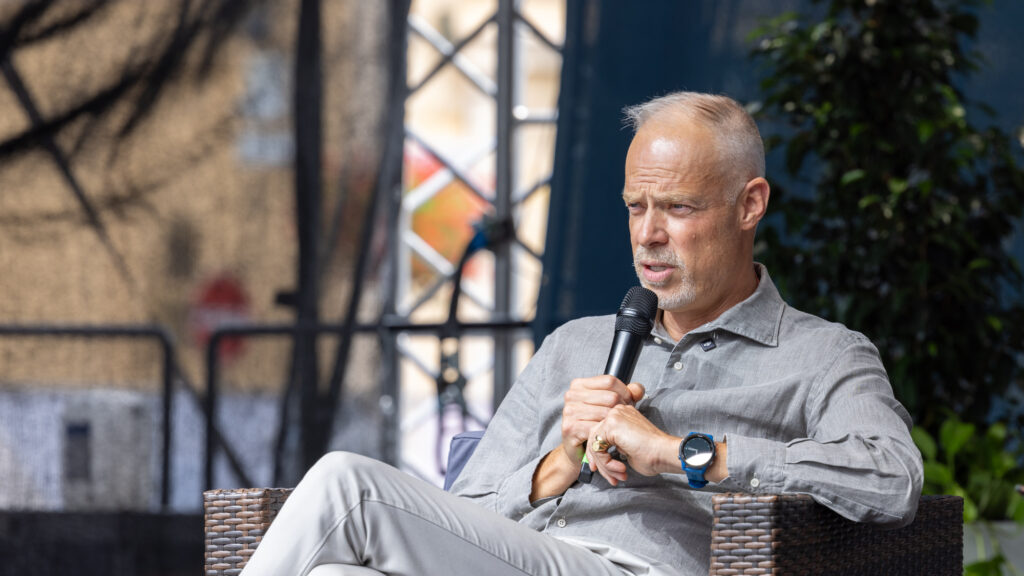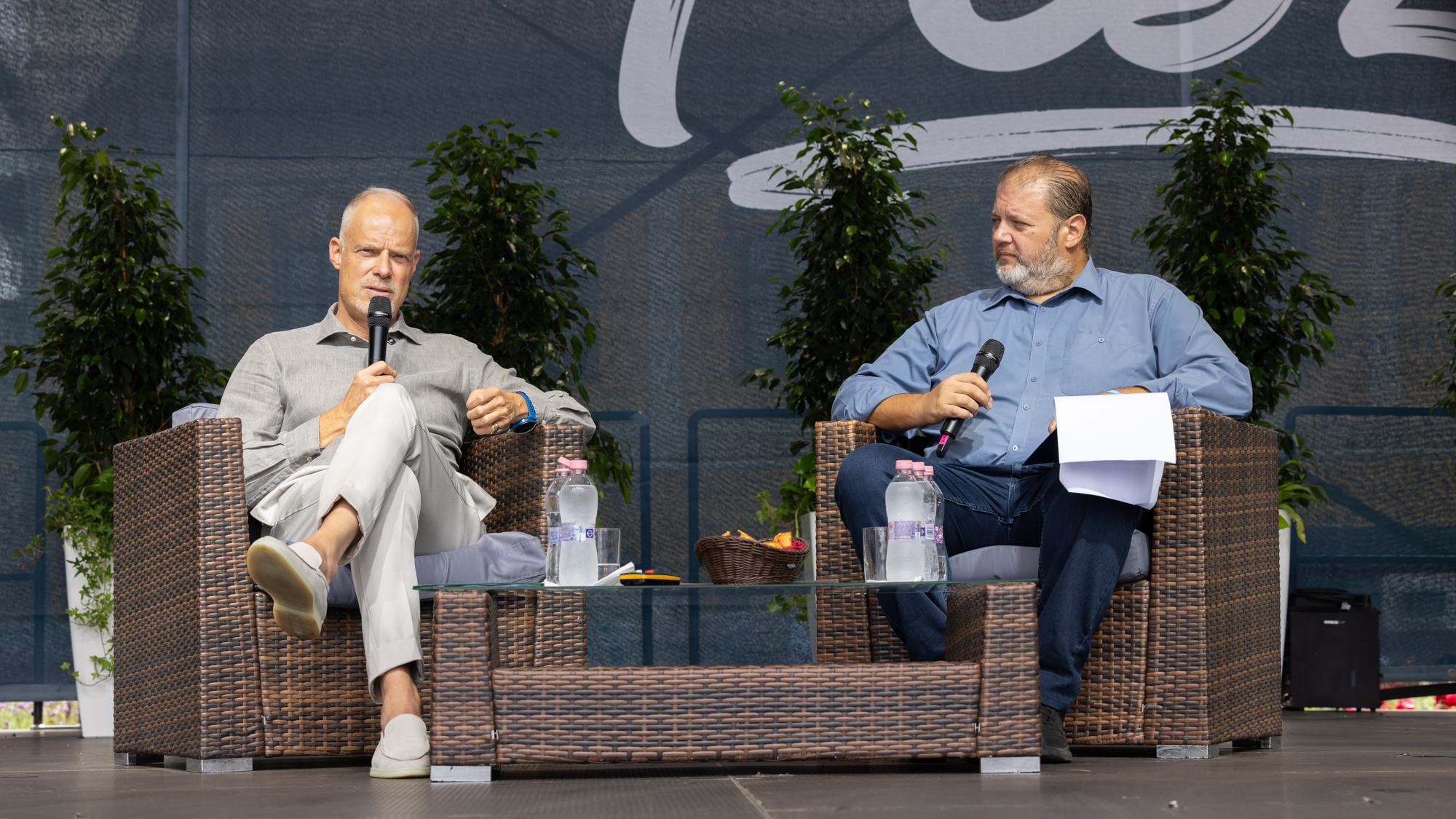‘Peace requires strength’ was the theme of a discussion between Hungarian Minister of Defence Kristóf Szalay-Bobrovniczky and Bálint Somkuti, research professor at the School of International Relations at Mathias Corvinus Collegium (MCC) (and an external contributor to Hungarian Conservative) on the second day of MCC Feszt 2024. The experts discussed topics such as Hungarian force development, the territorial defence reservist programme, and the war in Ukraine.
The discussion was preceded by the screening of a short film by the Hungarian Defence Forces, focusing on the recruiting of territorial reserve soldiers, which was the central topic of the two experts’ discussion. Szalay-Bobrovniczky pointed out that in 2010, when the first Orbán government took over the leadership of the country from the left-wing administration, the army was in a terrible state, with only 17 territorial defence reservists.
He described this as ‘irresponsibility bordering on treason.’
He stated that, compared to the conscripted force, a NATO-level professional force requires an indispensable complementary element in the form of a reserve system, which was not provided by the leadership at the time. However, the current campaign is successful, with a significant number of people signing up to be territorial defence reservists.
After a brief definition of the term ‘territorial reservist,’ Szalay-Bobrovniczky referred to the particularly important work of the Association of Hungarian Reservists, which brings together reservists when they are not on duty. The organization’s role is to keep the community alive through shared experiences, new friendships, various forums, and training courses. He emphasized that, as with professional soldiers, the value of patriotism is very important for reservists.
The next topic was force development. In this context, the minister said that modernization is taking place in three dimensions: rearmament, large-scale real estate and infrastructure development, and a change in mentality and culture. He pointed out that of these rearmament is the most visible, highlighting the
well-progressing process of building up an armoured brigade.
Szalay-Bobrovniczky listed the achievements so far: the Lynx infantry fighting vehicles rolling out of the Rheinmetall production plant in Zalaegerszeg, the Turkish-developed Gidrán troop carriers, which are planned to be produced in Hungary soon, and the PzH 2000 self-propelled howitzers. Additionally, he stressed that the equipment of the soldiers aligns with the modern, digital military concept.
Regarding the change of organizational culture, he noted that after the regime change, Hungary inherited an army that, although not popular, was well-armed and suited for the needs of the time, intended for first-strike operations. The transition from this to a modern, professional force was disastrous, involving cutbacks, asset sales, and barracks closures. This led to serious demoralization within the military and a kind of distrust between civilian and military society. In Szalay-Bobrovniczky’s words, this process needs to be reversed. Soldiers need to feel that they are important, entrusted with a sacred duty, and that a professional and confident force is necessary to fulfil this duty—the defence of the homeland.

The cult of heroism is also particularly important for restoring morale, as all forces need heroes and role models. Wars naturally produce these, as seen in the current conflict in Ukraine. ‘The Ukrainians are fighting with incredible valour and soldierly spirit, and heroes are being born every day,’ he said. As far as the HDF is concerned, the defence minister highlighted that the Hungarian soldier embodies certain national characteristics: ‘Recklessly brave, but not crazy. Resourceful, calm, clever, determined, and exhibiting strong comradeship,’ he assessed. Placing the discourse into a historical perspective, the minister noted that the ancestors of the present-day Hungarians successfully occupied their new homeland, thanks to their military skills and, even more so, excellent leadership. This heritage resurfaces in times of need, such as during the 1848 Revolution and War of Independence, he opined.
‘When our freedom is under attack, we call on our military prowess,’
he explained.
Returning to the topic of the war in Ukraine, the defence minister remarked that two very different sides are currently facing each other. On one side is the Russian ‘steamroller,’ which, although not very sophisticated, is a killing machine serving the purposes set by Moscow. On the other side is Ukraine, which is dependent on the West for its finances and military means. Szalay-Bobrovniczky pointed out that after Prime Minister Viktor Orbán’s peace mission, the Ukrainian side has already started to negotiate, indicating that there is no way around reality.
Related articles:








